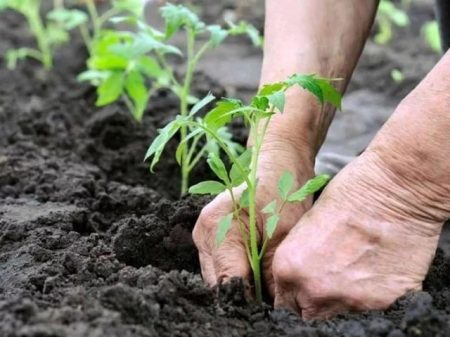
Tomato is not the most capricious culture, however summer residents often complain about a weak crop of vegetables. And even when choosing regional varieties of tomatoes, following all agrotechnical recommendations, the result may not please vegetable growers. The fact is that the quantity and quality of fruits is directly related to nutrients in the soil. That is why during the transplantation of plants into the soil, fertilizing is necessary.
Content
Why fertilize the wells?
Each gardener wants to collect a plentiful harvest of tasty and healthy tomatoes. And the soil over time is only depleted. Therefore, in order to provide the culture with vitamins, minerals, trace elements in advance, fertilizers are used.
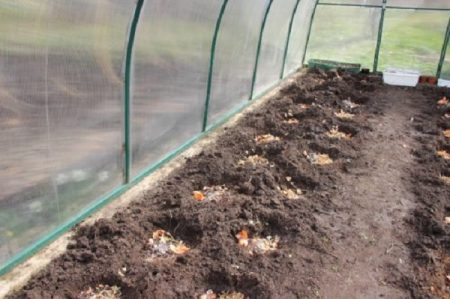
Modern summer residents have a choice between folk remedies and special chemicals sold in agricultural stores.
Tomatoes planted in holes with fertilizers bear fruit of high quality. Experienced vegetable growers claim that the proportions of the root system and the aerial parts of the culture are 1:15. To provide themselves with the necessary substances, the plant spends a lot of energy.
The average yield from 1 tomato bush is 5 kg. fruits. To do this, he needs 2 g of potassium, 0.5 g of phosphorus, 1.5 g of nitrogen.
Digging the soil is required, as it helps to saturate the earth with oxygen and destroys harmful insects. Excavation depth with soil transfer - shovel bayonet.
How to apply top dressing?
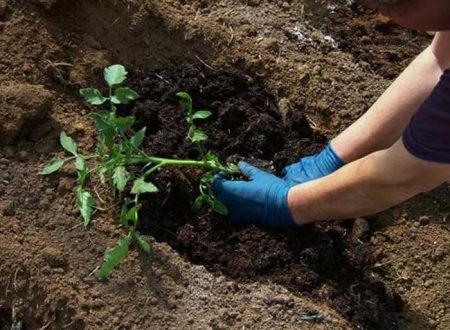
It is necessary to prepare the soil and add nutrients to it in the autumn, when the crop is already harvested. 24 hours before the seedlings are transferred from the greenhouse to the garden, you need to make holes and place complex fertilizers for nightshade in them. After transplanting seedlings, it is necessary to slightly compact the soil and put a little compost or black soil on the surface of the holes.
The amount of fertilizer applied requires control, since in case of an overdose of one of the components, the roots of the vegetable crop may suffer.
How to cook compost?
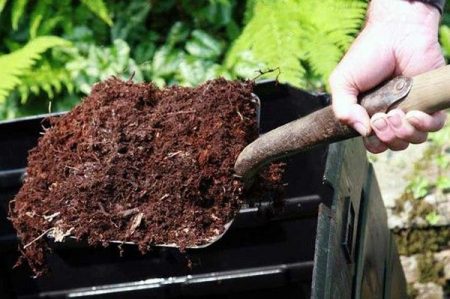
Soil quality changes significantly after application of this component. Compost is prepared in different ways, each summer resident has his own recipe. Beginners are better off using the following scheme:
- take a box or dig a hole for organic matter in a remote area;
- place household waste there, for example, cleaning vegetables and fruits, fallen leaves, tops, weeds, chips, sawdust, ash - that is, all components of plant origin that can overtake;
- put branches, wood chips and sawdust on the bottom of the box, and alternate between 40-50 cm of waste on top of the waste;
- mix compost in the process of "ripening" so that it is saturated with oxygen, and salts and organics are distributed evenly;
- in order to avoid drying out of the humus, in the summer pour it with water or a dung solution.
Feces from cats, dogs, and humans cannot be included in compost since they are sources of parasites. Also, citrus fruits, bones, milk and diseased plants should not be included.
What is put in the holes?
Chemical compounds
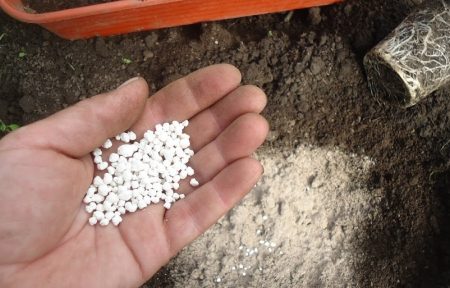
Now on the market and in specialized stores, summer residents are offered a large selection of balanced fertilizers that are placed in the holes when transplanting tomatoes. The main difference between such drugs is the development, taking into account the necessary vitamins and minerals for tomatoes and other plants of the nightshade family.
According to experienced agronomists, the best fertilizers applied to the wells for seedlings: "AgriKola", "Zdraven", "Multiflor".
Substances such as nitrate, urea and superphosphate diluted in water quickly act and have a tangible effect. They are dissolved and used only according to the annotation. Not only a shortage, but also an excess of fertilizers can negatively affect crop yields.
Folk remedies
There are summer residents who rightly consider natural fertilizers to be safer than chemical ones and prefer them.
Onion husk
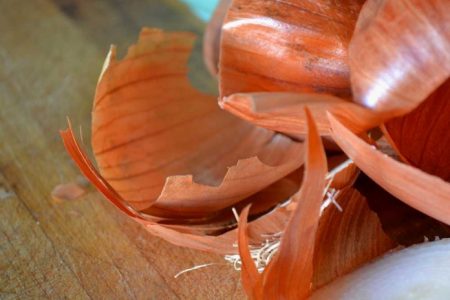
The component is put into the wells together with the seeds. Then they will sprout quickly, and the shoots will actively develop. Seedlings are not affected by temperature fluctuations and cold wind. She is not infected with the black gnat, a spider mite.
When planting tomatoes in an open ground, a handful of onion husks are placed under each young tomato. Then the bush will grow and bear fruit normally. The esters contained in natural fertilizer scare off the Colorado potato beetle and prevent the roots from rotting.
It is recommended to spray tomatoes already rooted in the garden with onion solution:
- take 2 large handfuls of husk;
- pour them boiling water about 15 cm. and leave for several hours;
- tincture is bred in water;
- make a solution in the ratio: 2 l. infusion on 1 bucket of water.
To prevent bushes from becoming infected with powdery mildew and other fungi, it is enough to spray them 2 times a season. The procedure is carried out during the formation of flowers and ovaries.
Ash
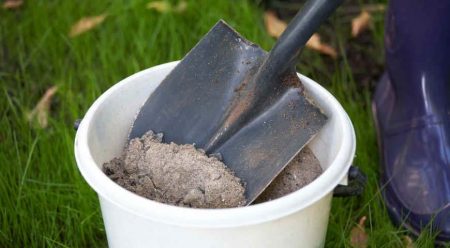
A very useful fertilizer for tomatoes, which can be obtained by burning wood, dry plants, straw. If you place the seedlings in the hole, where they brought a handful of ash, humus or compost, it will quickly take root.
Eggshell
It enriches the soil with calcium. The ingredient must be cleaned of the inner film, completely dried and crushed with a mortar. The egg shell is a lime fertilizer that reduces soil acidity.
Yeast
Due to such top dressing, tomatoes develop faster and adapt to new territory. 10 g of fresh pressed product are diluted in 10 l. warm water and insist 24 hours.
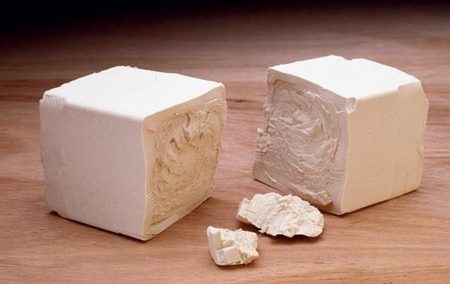
Features of watering
Freshly planted seedlings cannot be immediately watered. You can carry out the procedure once every few days, and in between to irrigate the soil. The soil should not dry out; it must be moistened from time to time.
It takes about a week to strengthen the root system of tomatoes and adapt to the open ground. Only after the indicated time can the transplanted tomatoes be watered. And after 14 days, earthing to the full height of the stem is permissible, but not more than 10 cm.

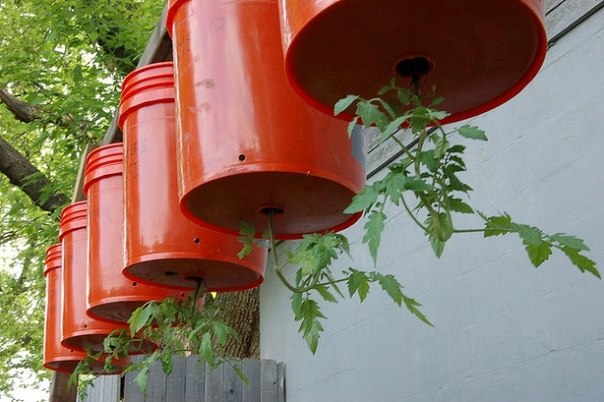
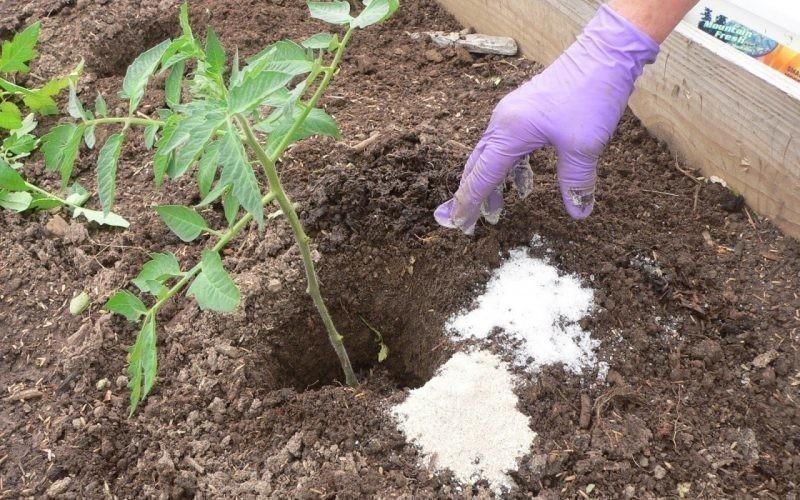
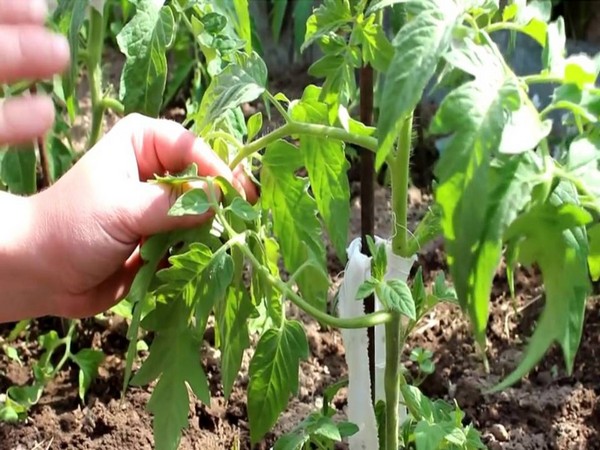
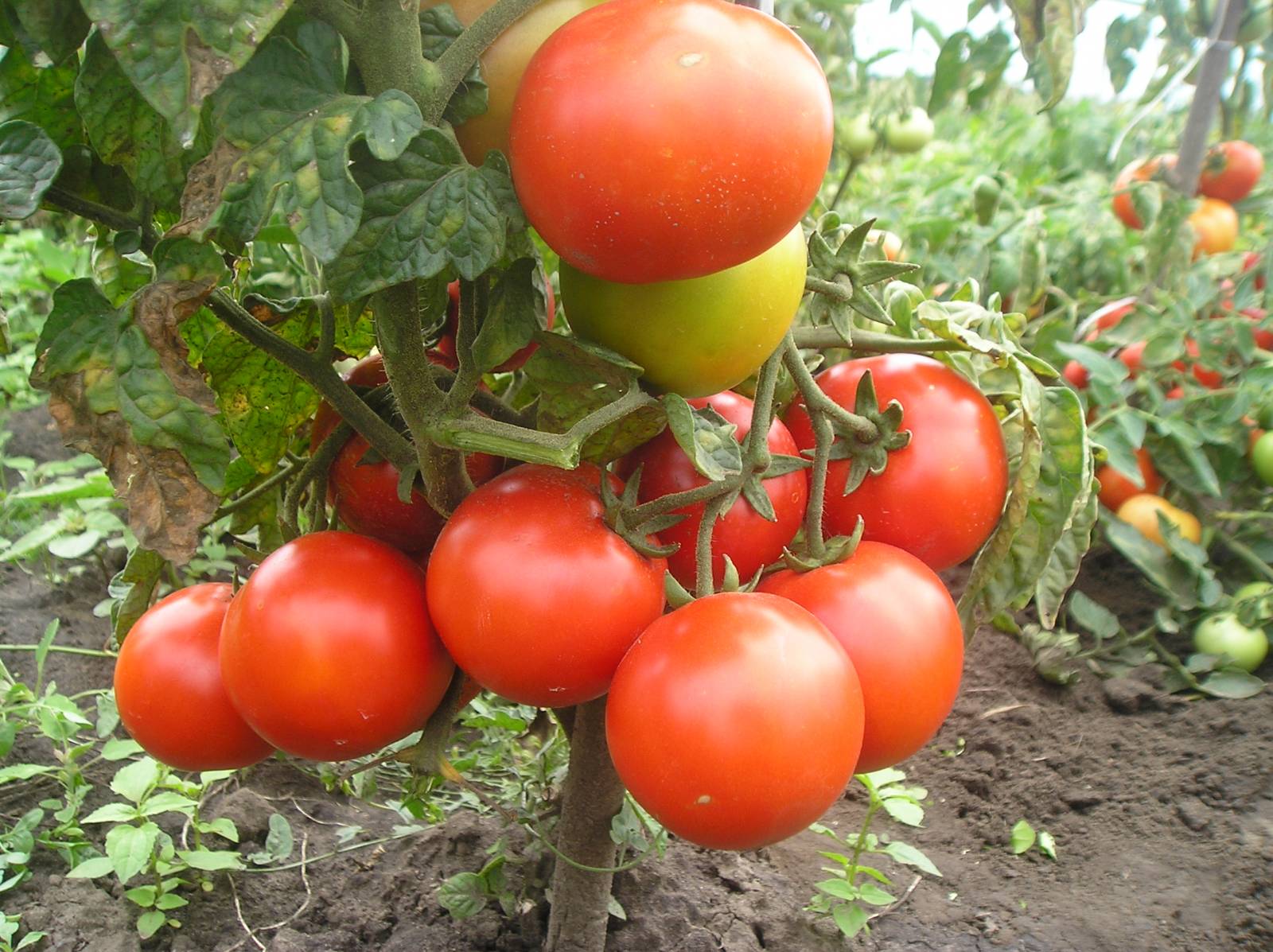 Low-growing tomatoes, without pinching: 5 of the most delicious varieties
Low-growing tomatoes, without pinching: 5 of the most delicious varieties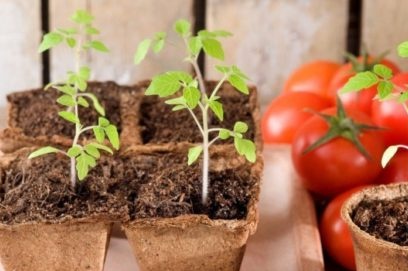 Why tomato seedlings grow poorly
Why tomato seedlings grow poorly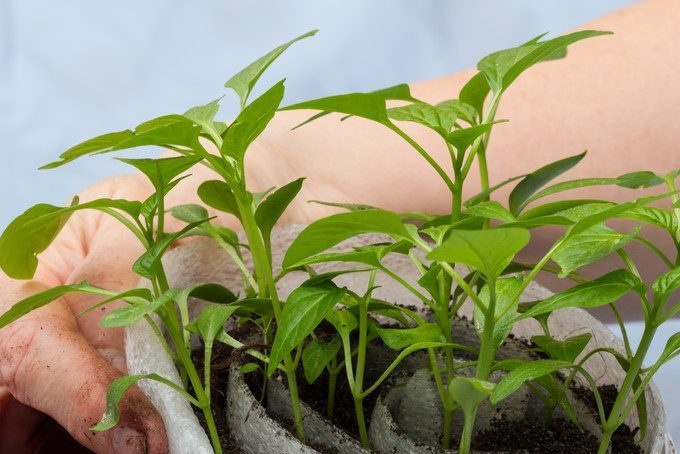 We grow a tomato in a shell
We grow a tomato in a shell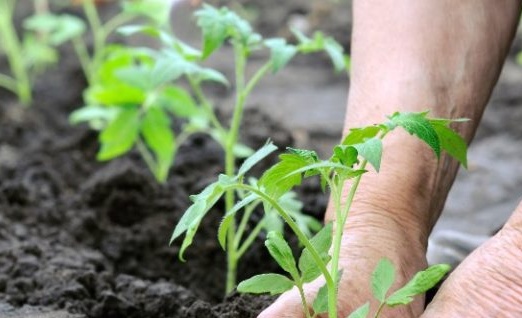 Growing tomatoes without watering according to the method of Kazarin
Growing tomatoes without watering according to the method of Kazarin
Nikolay
For home, for a family, a large bow is useless. Best of all are medium sized bulbs. Of course it’s nice to harvest a good crop, but when cooking dishes, excess onion does not improve the taste of the dish. Therefore, often chopped onions remain for another time, but until another time it is no longer fresh. Maybe someone has a different opinion, I do not mind. I am not a cook, not a cook. Several years ago, at the height of the summer season, he lived in the garden and cooked for himself. By evening, the children arrived with their granddaughter. Children without a conversation sat at the table, the granddaughter (14 years old) allegedly does not want to. What can a grandfather cook? Persuaded to try. I tried and asked for supplements. What can I say?